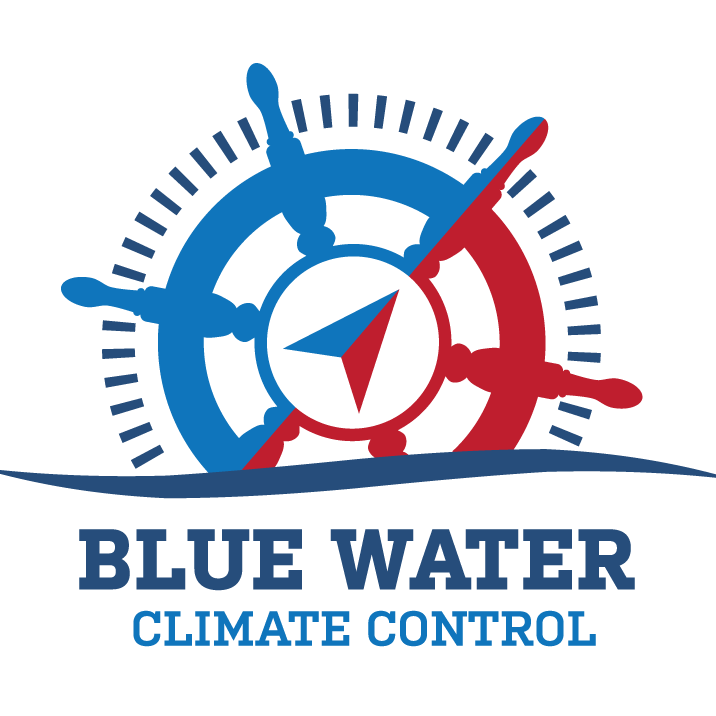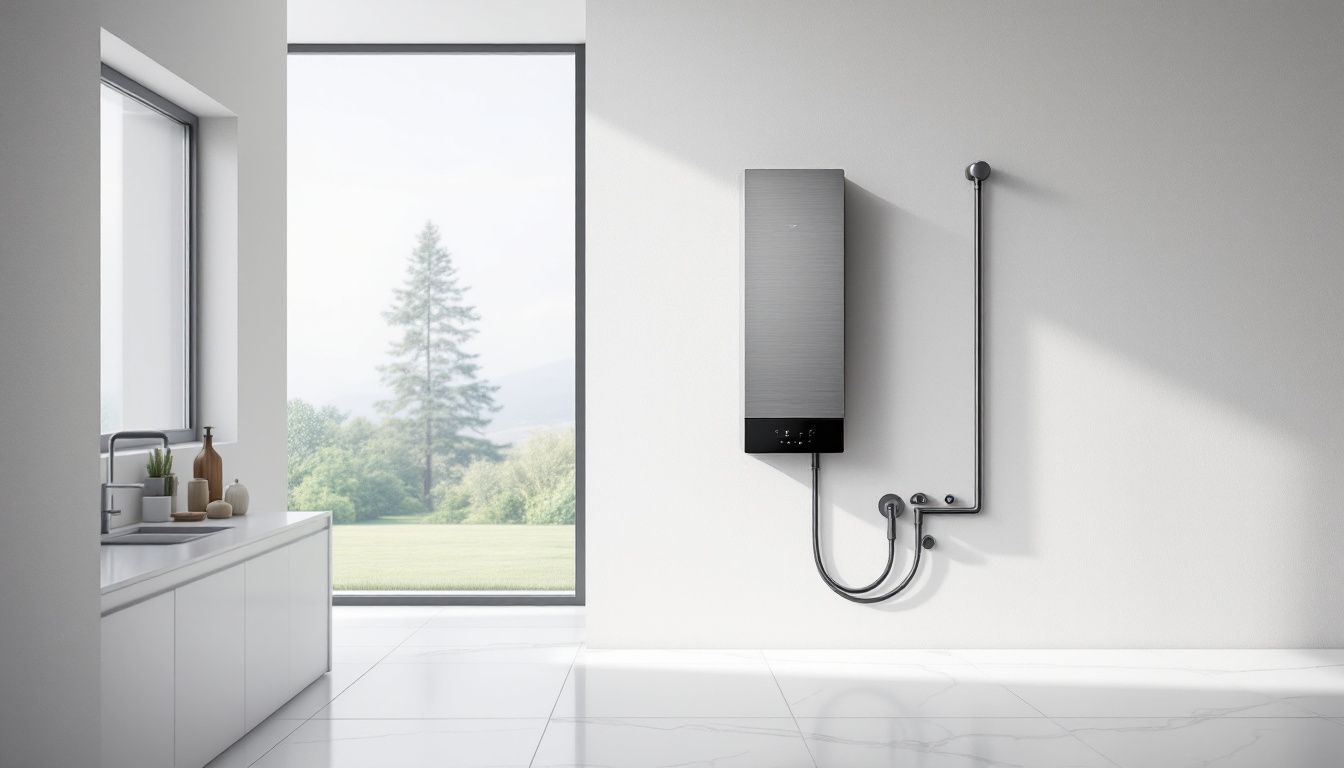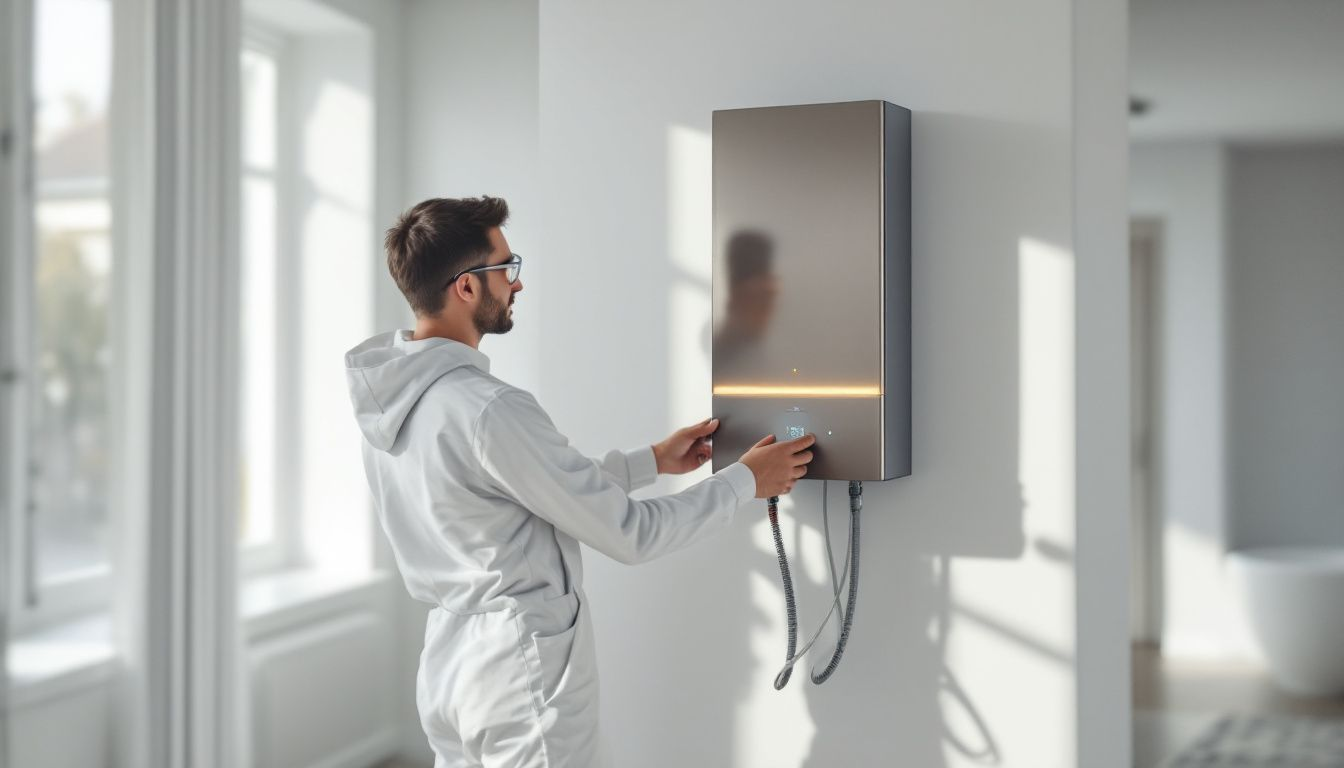Shop Tankless Water Heaters: Find the Best Options for Your Home
If you’re looking to shop tankless water heaters, you’re in the right place. This guide covers the types available, their benefits, and how to pick the best one for your needs. You’ll also find tips on where to buy and how to access services while being informed about data collection practices.
Key Takeaways
Tankless water heaters eliminate standby energy losses, providing an endless supply of hot water and enhancing energy efficiency by approximately 30% compared to traditional models.
Choosing the right tankless water heater requires assessing household peak hot water demand and considering factors such as temperature rise and available fuel sources.
Regular maintenance and troubleshooting are crucial for maximizing the lifespan and efficiency of tankless water heaters, with common issues including fluctuating water temperatures and mineral buildup.
Quick Links:
Understanding Tankless Water Heaters
Tankless water heaters, also known as demand-type or instantaneous water heaters, have gained popularity for their ability to heat water only when needed. This eliminates the standby energy losses typical in traditional storage water heaters, where water is continuously heated and stored, even when not used. This innovative approach means you can enjoy a continuous hot water supply, typically ranging from 2 to 5 gallons per minute, depending on the model and fuel type.
Gas-fired tankless water heaters usually offer higher flow rates than their electric counterparts, making them suitable for larger households with more significant hot water needs. However, the efficiency of gas models can be slightly offset by the energy used to maintain the pilot light. Despite this, gas and electric tankless water heaters have built-in safety features to monitor temperature and exhaust, ensuring secure operation.
The initial cost is an important consideration when opting for a tankless water heater. While these units generally have a higher purchase price than traditional storage tank models, their long-term energy savings and efficiency often justify the investment. Understanding these key aspects can help you decide whether a tankless water heater is right for your home.
Benefits of Tankless Water Heaters
One of the most significant advantages of tankless water heaters is their ability to provide an endless hot water supply. Without waiting for a storage tank to heat up, you can enjoy hot showers, dishwashing, and laundry without interruptions. This on-demand heating capability also contributes to the impressive energy efficiency of tankless systems, which are typically around 30% more efficient than traditional tank models.
Environmental benefits are another compelling reason to consider tankless water heaters. These systems lower carbon emissions than conventional water heaters by reducing standby energy losses and operating more efficiently. Additionally, their compact design means they take up to 80% less space, allowing for more efficient use of your home’s layout.
Gas models generally receive higher energy efficiency ratings than electric tankless water heaters. However, electric versions can still be a good option for smaller households or specific applications without gas connections. Overall, the benefits of tankless water heaters make them a worthy consideration for any home looking to upgrade its hot water system.
Types of Tankless Water Heaters
Tankless water heaters come in three main types: electric, gas, and propane. Each type has its advantages and is suited to different household needs. Electric tankless water heaters are ideal for homes with lower hot water demand. They offer a compact solution and are generally easier to install, making them popular for smaller households or specific applications like a single bathroom or appliance.
On the other hand, gas-powered tankless water heaters typically deliver higher flow rates than electric models, making them more suitable for larger households with more significant hot water requirements. These units are often preferred in homes where natural gas is readily available, as they can efficiently meet the demands of multiple simultaneous hot water uses.
Propane tankless water heaters offer a flexible alternative for areas without natural gas lines. These models perform similarly to gas units and can be an excellent choice for rural or off-grid locations.
When choosing between electric, gas, and propane tankless water heaters, consider the available fuel sources and your home's specific hot water needs. This will ensure you select the most efficient and suitable unit for your situation.
How to Choose the Right Tankless Water Heater
Understand your household’s peak hot water demand to choose the right tankless water heater for your home. This means estimating how many appliances and fixtures will be used simultaneously, such as showers, dishwashers, and washing machines. Calculate this peak demand to determine the necessary flow rate, which measures the water output in gallons per minute.
Another crucial factor to consider is the rise in temperature, which is the difference between the incoming groundwater temperature and the desired hot water output temperature. For instance, if your groundwater temperature is 50°F and you want your hot water to be 120°F, the temperature rise would be 70°F. This information helps you select a unit that efficiently meets your hot water needs.
In some cases, installing tankless water heaters for individual appliances or specific home areas might be beneficial to ensure consistent hot water availability. Finally, consider whether an electric, gas, or propane model best suits your household’s needs based on the available fuel sources and installation requirements. These considerations will help you choose your home's most appropriate tankless water heater.
Installation Process for Tankless Water Heaters
The installation process for tankless water heaters involves several essential steps to ensure safe and efficient operation. Proper access permissions and security protocols are crucial during the installation process. One of the first steps is to drill a hole in an outside wall for the fresh air intake and vent pipes, as traditional chimneys are ineffective for tankless units. Proper ventilation is crucial to prevent overheating and the buildup of harmful gases.
Next, the contractor will connect new hot and cold water lines, typically copper pipes. Deburring and soldering the pipes to the existing plumbing may be necessary during this process. A pressure relief valve is also installed as a safety feature to prevent excessive system pressure during operation.
Following these steps ensures that your tankless water heater operates safely and efficiently.
Top Brands That Offer Tankless Water Heaters
Several top brands dominate the market for tankless water heaters, each offering unique features and benefits. Noritz is renowned for its durable gas tankless water heaters, built with high-quality materials and advanced technology to enhance lifespan and ease of installation.
Another leading brand, Navien, offers condensing and non-condensing models known for their energy efficiency and quick hot water delivery. Rinnai stands out for its compact design and extended warranty periods, although its range of electric models is somewhat limited.
Takagi is an excellent choice for households prioritizing safety, emphasizing overheating protection and temperature control. Lastly, Rheem provides various tankless options at competitive prices, available in electric and gas configurations, though it offers fewer advanced features than some competitors.
Among these brands, the Navien NPE-240A2 is highly rated, boasting a customer satisfaction score of 4.9 out of 5 based on over 2,000 reviews. Each of these brands offers reliable options that cater to different household needs and preferences, ensuring that you can find a tankless water heater that meets your specific requirements.
Cost and Efficiency Comparison
When considering the switch to a tankless water heater, it’s essential to compare the costs and efficiency of different models. The initial cost of tankless water heaters is generally higher than traditional models, with whole-home units starting at around $1,000. Installation costs can vary depending on your home’s existing setup and any necessary plumbing upgrades.
However, tankless water heaters often justify their higher upfront cost with their longevity and efficiency. These units can last over 20 years, significantly outpacing the lifespan of traditional storage heaters, which typically last 10 to 15 years. The annual operating costs also differ, with gas tankless units costing around $195 per year and electric models approximately $535 per year.
Condensing tankless water heaters, in particular, can significantly reduce utility bills, averaging savings of about $1,800 over conventional models for a family of four. The payback period for switching from a traditional gas water heater to a gas tankless system can take between 22.5 to 27.5 years while replacing an electric storage tank with a tankless unit could require 12 to 20 years for payback.
These comparisons underscore the long-term benefits and potential savings of investing in a tankless water heater.
Where to Shop for Tankless Water Heaters
For those looking to purchase tankless water heaters, “My Tankless Water Heater Store” is a reliable online option. This store offers diverse tankless water heaters to meet various needs, whether you’re looking for an electric, gas, or propane model.
Visit their website at http://www.mytanklesswaterheaterstore.com to browse their extensive inventory and find the perfect unit for your home. Shopping online allows you to compare different models and features, ensuring you make an informed decision.
Common Issues and Troubleshooting
Like any appliance, tankless water heaters can encounter issues that require troubleshooting. Some error messages may indicate issues with access permissions, emphasizing the importance of user permissions and security protocols. Common problems include fluctuating water temperatures and insufficient hot water supply. Addressing these issues promptly is crucial to maintaining the performance and longevity of your tankless water heater.
Seek professional repair help, as DIY attempts without expertise can worsen issues and potentially void warranties. Regular maintenance can also prevent many common problems, ensuring your tankless water heater operates efficiently.
Maintenance Tips for Longevity
Regular maintenance is essential to maximize the lifespan and efficiency of your tankless water heater. Ensuring proper access for maintenance checks is crucial to prevent operational issues. The unit must be flushed annually or biannually to remove mineral deposits that can hinder efficiency. Mineral buildup, mainly from hard water, can impair the function of tankless water heaters if not regularly addressed.
Routine maintenance checks by a qualified technician can identify potential issues early and ensure efficient operation. Avoid overloading the system with too many simultaneous hot water demands, which can cause it to struggle or shut down. Using low-flow fixtures can help reduce demand for the tankless water heater.
Regularly checking for leaks around the unit can prevent significant damage and prolong the water heater’s life. Ensure that the air supply and exhaust are not blocked to avoid operational issues, often indicated by an error code on the unit. These maintenance tips will help you get the most out of your tankless water heater for years.
Summary
In conclusion, tankless water heaters offer numerous benefits, including an endless hot water supply, energy efficiency, and space savings. Understanding the different types and how to choose the suitable model for your home is crucial to making an informed decision.
By considering the installation process, top brands, cost comparisons, and maintenance tips, you can ensure your tankless water heater investment is worthwhile. Embrace the future of home water heating and enjoy the comfort and efficiency tankless water heaters provide.
Frequently Asked Questions
What are the main benefits of tankless water heaters?
Tankless water heaters offer an endless supply of hot water while being energy-efficient, space-saving, and environmentally friendly. These advantages make them a superior choice for modern households.
How do I choose the right tankless water heater for my home?
To choose the right tankless water heater for your home, assess your household's peak hot water demand, flow rates, and the desired temperature rise while deciding between electric, gas, or propane models. This will ensure that you select the most suitable option for your needs.
What are some top brands for tankless water heaters?
Top brands for tankless water heaters include Noritz, Navien, Rinnai, Takagi, and Rheem. These brands are known for their varied models and unique features. Choosing one of these brands can ensure reliable hot water solutions.
What common issues might I face with a tankless water heater?
Fluctuating water temperatures and insufficient hot water are common issues with tankless water heaters, which can often be prevented through regular maintenance. Addressing these concerns proactively will enhance the performance and longevity of your system.
Where can I buy tankless water heaters?
You can purchase tankless water heaters from My Tankless Water Heater Store, a reputable online retailer that offers a range of options to meet your specific requirements.






